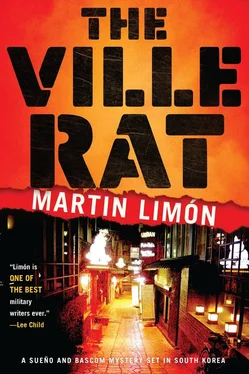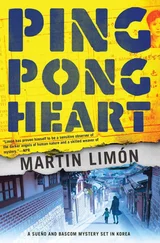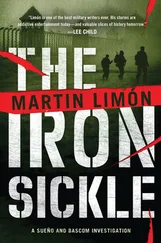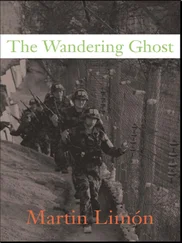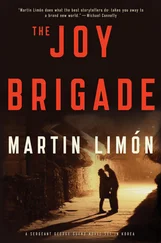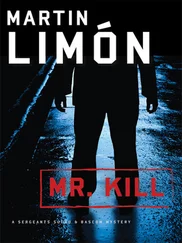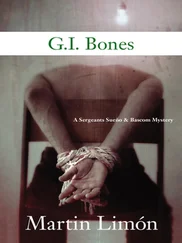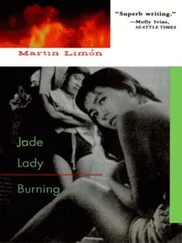Martin Limon - The Ville Rat
Здесь есть возможность читать онлайн «Martin Limon - The Ville Rat» весь текст электронной книги совершенно бесплатно (целиком полную версию без сокращений). В некоторых случаях можно слушать аудио, скачать через торрент в формате fb2 и присутствует краткое содержание. Год выпуска: 2015, Издательство: Soho Press, Жанр: Полицейский детектив, на английском языке. Описание произведения, (предисловие) а так же отзывы посетителей доступны на портале библиотеки ЛибКат.
- Название:The Ville Rat
- Автор:
- Издательство:Soho Press
- Жанр:
- Год:2015
- ISBN:нет данных
- Рейтинг книги:3 / 5. Голосов: 1
-
Избранное:Добавить в избранное
- Отзывы:
-
Ваша оценка:
- 60
- 1
- 2
- 3
- 4
- 5
The Ville Rat: краткое содержание, описание и аннотация
Предлагаем к чтению аннотацию, описание, краткое содержание или предисловие (зависит от того, что написал сам автор книги «The Ville Rat»). Если вы не нашли необходимую информацию о книге — напишите в комментариях, мы постараемся отыскать её.
The Ville Rat — читать онлайн бесплатно полную книгу (весь текст) целиком
Ниже представлен текст книги, разбитый по страницам. Система сохранения места последней прочитанной страницы, позволяет с удобством читать онлайн бесплатно книгу «The Ville Rat», без необходимости каждый раз заново искать на чём Вы остановились. Поставьте закладку, и сможете в любой момент перейти на страницу, на которой закончили чтение.
Интервал:
Закладка:
– 12-
Back in the CID office, Riley said, “What in the hell did you guys do ?”
“We didn’t do nothing,” Ernie told him.
“But there was a riot at the courtroom and shots were fired. You must’ve had something to do with it.”
“Just innocent bystanders,” Ernie told him. He stalked to the overheated coffee urn and poured himself a cup of burnt ink.
I asked Riley, “Where’s the NAF inventory report?”
“The one Burrows and Slabem did?”
“Yes,” I said, “the one they won an award for.”
“Why do you want to know?”
“Not your business,” I replied. “Where is it?”
“Already filed,” he said.
“In the records room?”
“Where else?”
I stalked out of the admin office and down the hallway. At a room marked records, I entered and switched on the light. It took a few minutes of searching, but eventually I pulled out the report and plopped the thick document down on a grey table. I sat down and pulled out my notebook and a pen. It was dry, all written in officialese with plenty of graphs and charts and dozens of pages of addendums, but despite these drawbacks, it made for interesting reading.
Someone rapped on the door. Without waiting, Ernie entered.
“What the hell you doing in here?”
I told him.
“And?”
“And nothing. But some of these charts raise questions.”
“Like what?”
“Just a few possible discrepancies. Let’s go talk to somebody.”
“Where?”
“The Eighth Army Comptroller’s Office.”
Ernie groaned.
“Don’t worry,” I told him, “it should be fun.”
The head of the Non-Appropriated Fund section of the 8th Army Comptroller’s Office was a Department of the Army Civilian by the imposing name of Wilbur M. Robinson Sr. He was a round-faced man with wispy hair combed straight back and an old-fashioned, neatly trimmed mustache beneath a red-veined nose. Every letter of his name was etched into a yard-wide hand-carved nameplate that covered the front edge of his mahogany desk.
“Yes?” he said, glancing irritably up at us over steel-rimmed glasses.
I flashed my badge. Ernie chomped on his gum, studying all the awards and photographs plastered to the walls. Some of them showed a youngish Mr. Robinson shaking hands and grinning with various American generals who could now be found in the indices of history books.
“Who let you in?” he asked.
“We did,” Ernie replied, jamming his thumb into his chest.
“Who do you think you are?”
“CID agents,” I replied, “investigating a criminal case.”
“That doesn’t mean you can just barge in here.”
“Sure it does,” Ernie replied, taking a seat in one of the leather-upholstered chairs.
Mr. Robinson reached for the black telephone on the edge of his desk. Before he could lift it, I said, “The Central Locker Fund.” He stared up at me and let go of the phone. I slid one of Burrows and Slabem’s charts in front of him. “Notice anything odd about that?” I asked.
He glanced at it but quickly looked back up at me.
“What are you getting at?”
“Expenditures versus receipt of inventory,” I said. “They don’t match. Haven’t for years.”
“Ridiculous.”
I pointed at one of the lines. “The prices here are approximately three percent higher than expected,” I said. “Have been for years.”
“Prices fluctuate,” he said. “You can’t tell anything from a simple-minded chart.”
“Simple-minded like the guys who conducted the inventory?” Ernie said.
Robinson turned and studied him. Then he turned back to me. “You’re not here on official business, are you?”
“Official as the day is long,” I said.
“But nobody in your chain of command chopped off on this.”
Chopped off . The slang of an old Asia hand, meaning gave the stamp of approval.
“Answer the question, Robinson,” Ernie said. “Why are the Central Locker Fund expenditures higher than the receipt of inventory?”
Robinson stood. He wore what appeared to be an expensive grey suit, probably handcrafted by a British tailor in Hong Kong. DACs could afford regular rest-and-recreation jaunts to Hong Kong or Tokyo. GIs couldn’t.
“This interview is over,” he said.
“No, it’s not,” Ernie replied.
Robinson lifted the phone again, and this time he dialed. A few seconds later, he said, “Fred, I’ve got a couple of your boys over here.”
He was speaking, I believed, to Major General Frederick S. Nettles, acting Chief of Staff of the 8th United States Army.
I motioned to Ernie, and discreetly, and expeditiously, we left the room.
“What the hell did that accomplish?” Ernie asked me once we were out in the hallway.
“Built a fire under their butts,” I said.
“Maybe one that will spread to us.”
“Maybe. Or maybe it’ll flush out a few snakes.”
Before we left, we wandered down a hallway that led to the Non-Appropriated Fund Records Repository. Bored Korean clerks sat at desks with piles of pink and yellow onionskin in their in-baskets. We walked past them and entered the huge Quonset hut where the records were actually kept. Rows of metal stanchions supported wooden shelves that were labeled with dates and the type of merchandise being recorded. On the shelves, labeled cardboard boxes stuffed with records were piled almost to the ceiling. We wandered around the long rows, craning our necks skyward.
“Burrows and Slabem inventoried all this?” Ernie asked.
“Unlikely,” I replied.
When we returned to the CID office, Miss Kim approached me. “Kuenchanna-yo, Geogie?” she asked. Are you okay?
I told her I was fine. She handed me a written phone message. It was from Inspector Gil Kwon-up. Mr. Kill. The time had been about twenty minutes ago. He wanted to meet us and said he would pick us up in front of Gate 5 in an hour. I showed the message to Ernie, who sipped on the coffee, grimaced, and set it down.
Forty minutes later, we were standing tall outside of Yongsan Compound Gate Number 5. A blue KNP sedan pulled up, Officer Oh at the wheel, Mr. Kill sitting in front in the passenger seat. The back door popped open. Ernie and I climbed in.
“Bad news,” Inspector Kill said.
Officer Oh stepped on the gas and sped into traffic.
“What now?” Ernie asked.
“It’s about the little kisaeng we talked to.”
“The one at the Bright Cloud?” I asked.
“Yes. She’s been taken.”
“Taken by who?” Ernie asked.
“The traffickers she escaped from. They found her.”
We pulled in back of the whitewashed building that housed the Dongbu Police Station. Dongbu means Eastern District. We were ten kilometers east of downtown Seoul, just south of Walker Hill and north of the Han River.
On the drive over, Inspector Kill briefed us on what they’d learned from the two men who’d been arrested in Songtan for trying to kill us with a taxicab. The men were hardened members of a crime syndicate and they hadn’t admitted to much. But the KNPs did believe that they were the same two who had stolen the garlic truck and tried to run us down the same way in Samgakji.
“They’re not very good drivers,” Ernie said.
“Why do you say that?” Kill asked.
“Because if they were good drivers, George and I would be dead.”
He nodded. “I supervised the interrogation myself. But there are layers in these organizations, and one can probe only so deeply into them. What these two men know is limited. What they’re willing to admit to is even less.”
“But you came up with something,” I said.
“I came up with a hunch. A general notion that someone is very unhappy. What do you say, that someone is unhappy because the boat has been stoned?”
Читать дальшеИнтервал:
Закладка:
Похожие книги на «The Ville Rat»
Представляем Вашему вниманию похожие книги на «The Ville Rat» списком для выбора. Мы отобрали схожую по названию и смыслу литературу в надежде предоставить читателям больше вариантов отыскать новые, интересные, ещё непрочитанные произведения.
Обсуждение, отзывы о книге «The Ville Rat» и просто собственные мнения читателей. Оставьте ваши комментарии, напишите, что Вы думаете о произведении, его смысле или главных героях. Укажите что конкретно понравилось, а что нет, и почему Вы так считаете.
